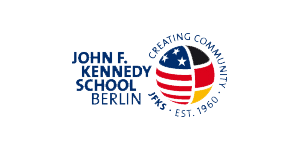“Chemie ist, wenn es knallt und stinkt“ – this typical German statement is only half of the truth.
Beginning with 7th grade chemistry our school is applying the science „chemistry“ for one semester (two periods per week) to real life situations. This includes understanding carbon dioxide, how it is produced, and environmental impacts including how to avoid the rising level of carbon dioxide in our atmosphere. Water is also a major 7th grade topic covered. The topic includes learning about the importance of water and water conservation.
In 8th grade the students learn how to use the periodic table, how to interpret its organization; furthermore they learn about the importance of Rutherford’s experiment and the meaning of the Lewis dot structure. The final 8th grade topic is metals – its properties, usage, and importance.
Later, in 9th grade, when acids and bases are examined, we also aim to apply chemistry to real life. For example, how can it be that red cabbage changes its color to blue, or why do athletes use magnesium tablets after running? Subsequently the students start with organic chemistry: hydrocarbons (alkanes) are the main topic.
10th grade is the year of organic chemistry: alcohols, aldehydes, carbon acids and esters will be taught and examined experimentally.
In 8th to 10th grade the chemistry instruction could be held two periods per week for a school year or it is offered epochal, that means four periods per week for one semester. Care is taken to ensure that the instruction takes place as much as possible in a lab room, which makes it possible to have a lot of student labs done whenever possible.
Besides doing student labs other forms of instructions are included: acting as a researcher, self-organized learning, and problem-oriented learning (for example, to prepare for the MSA-presentation in 10th grade).
Interdisciplinary offers include the “biology-chemistry-elective” courses in 9th and 10th grade which provide the opportunity to model the contents according to the students’ interests. The practical work and learning and applying of various methods, e.g. portfolio work, proving hypothesis, etc., are in the focus. Small classes allow a relaxed working atmosphere and an individual work process. Students work on projects like “From the sheep to the sweater”, “Bionics – learning from nature”, “Small particles, quite big – advantages and disadvantages of nano technology” etc. The two-periods Science Lab courses (8th to 10th grade) focus on scientific methods, such as developing experimental setups, in-depth research, etc. Depending on the teacher, the focus could be on Biology or Chemistry.
In the “Oberstufe” chemistry is offered as “Grundkurs” as well as “Leistungskurs”. In the high school diploma program the “AP Chemistry course takes place in 11th or 12th grade.
“Der einfachste Versuch, den man selbst gemacht hat, ist besser als der schönste, den man nur sieht.” (Michael Faraday 1791-1867)
